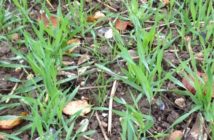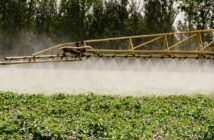Research into optimum low energy extraction to process cultivated kelp for biostimulants has shown promising results.
Interest is growing in the use of seaweed-derived biostimulants due to their sustainable potential to enhance crop growth, promote stress tolerance and increase nutrient use efficiency.
Biotech business Algapelago Marine with Rothamsted Research and the UK Agri-Tech Centre teamed up to demonstrate the efficacy of these products under abiotic stress conditions.
Current agri-seaweed products are dominated by seaweed sourced from wild harvest and the demand for seaweed-derived soil supplements is expected to grow exponentially as policy drives a reduction in chemical inputs. However, the biochemical mechanisms involved in their beneficial impacts on crops remain poorly understood.
Trials investigated the impact of four different rates of foliar applications of prototype biostimulant TD65 on wheat and field bean yields under both well-watered (control) and drought-stressed conditions, and the second investigated whether foliar application or soil application had the greatest impact on wheat yields.
In the application rate experiment, an optimal application rate was identified, resulting in enhanced plant growth and a 24% increase in wheat grain yield, as well as a 45% increase in grain number, compared to the control values. No benefit of the biostimulant application was observed in the drought-stressed plants.
In the application method experiment, the application method didn’t affect the yields of wheat in either growing medium, although the plants grown in a hydroponic system significantly outperformed those grown in soil.




